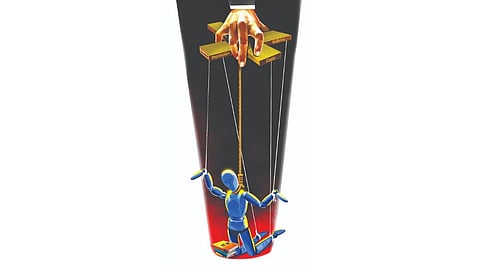

CHENNAI: With IIT-M currently surrounded by controversies over students’ suicides, the members of independent student bodies of the institution like the ChintaBar and Ambedkar Periyar Study Circle (APSC) and many students who took part in the protests, recall their experiences and observations to this reporter.
Ravi (name changed) is one of the protestors who shares a complex relationship with his PhD guide. He added that guides often dominate scholars and have unhealthy attitude towards them, thus creating mental stress.
“Most scholars do not share healthy relationships with their guides because guides often dominate, nit-pick and demoralise a scholar’s work, criticise their attitude and sometimes get intrusive, both personally and professionally. Several students/scholars who participated in the protest also have issues with their guide,” he explained. “These factors, and the constant ego tussle create a hostile environment in the department.”
Pointing out that the protest at the institution began only after the suicide victim Sachin Kumar Jain’s brother filed a complaint, he added: “Sachin is not an isolated case that can be brushed off.”
Meanwhile, a former member of APSC rued that the institution was more concerned about protecting its reputation and the media glare on its brand than empathising with students. “There have been several protests demanding mental health survey, the reasons behind students’ suicide and myriad forms of discrimination, but the management has been indifferent to all these issues. We’re gradually losing faith in the system and redressal mechanisms,” he added.
A ChintaBar member said that the management’s efforts may be genuine, but they’re definitely ineffective.
“So many times, cases of suicide attempts, deaths by suicide and discrimination based on gender and caste make headlines. To address all this and nip them in the bud, it’s vital for the institution to adopt some serious strategies,” the member opined. “Currently, they’re focused on the wellness and grievance redressal website called ‘Be Happy IIT-M’. It includes helpline numbers, wellness training programmes and kushal meeting for faculties. We hope the institute regularly seeks students’ opinions while implementing the programmes.”
Subsequently, another member highlighted the management’s cluelessness on tackling such issues. “Suicides are normalised in the institution. During the protest, we believed the management would take the issue seriously by calling off classes, but instead they moved on with the routine,” the member stated.
Students and all independent bodies at the institution state that it was a collective effort in one sense, but the onus lies with the management to be more responsible in addressing students’ concerns.
The student bodies are planning to meet the director of the institute frequently to speak about their challenges.
“The system here is extremely competitive. Students literally compete in every sense – from exams, placements to even joining clubs that are part of co-curricular activities. As this is the condition across IITs, it’s better to address the issue by reducing credits or by adopting other mechanisms,” said one of the members of the APSC.
Visit news.dtnext.in to explore our interactive epaper!
Download the DT Next app for more exciting features!
Click here for iOS
Click here for Android